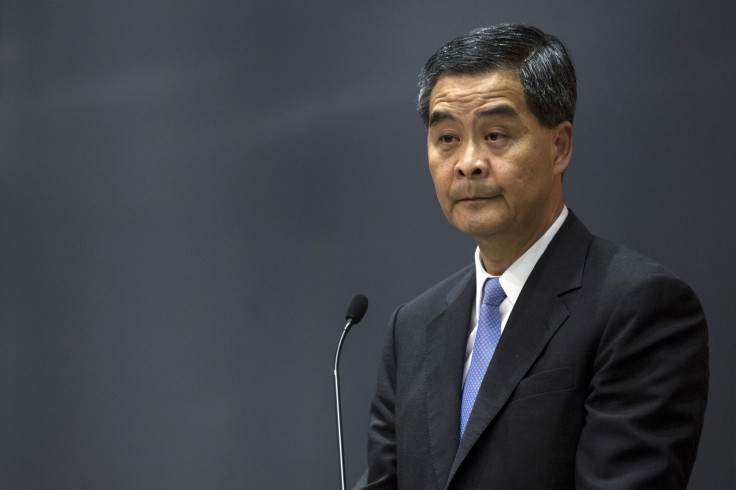Hong Kong's Leung Chun-Ying Received Secret Payout To Support Australian Engineering Firm's Interests: Report

Hong Kong's chief executive, Leung Chun-ying, secretly received millions of dollars from Australian engineering firm UGL in exchange for his support the company’s interests in Asia, an investigation by Australia’s Fairfax Media revealed. The allegation surfaced amid nearly two weeks of protests by pro-democracy student groups that have called for Leung’s resignation.
Fairfax Media, which owns the Sydney Morning Herald and the Age, obtained a secret contract between Leung and UGL. Composed in December 2011, the contract stipulated that Leung -- then a director and chairman of Asia Pacific operations at DTZ Holdings, an insolvent British property services firm -- would support UGL’s acquisition of the company through his connections in Hong Kong and mainland China. In exchange, Leung received £4 million, the equivalent of about $6.4 million.
While the contract was signed before Leung became Hong Kong’s chief executive, he received the money in payments in 2012 and 2013, after he took office. UGL also promised to pay Leung an additional £1.5 million bonus owed to him by DTZ, while the dying company’s shareholders received nothing.
Leung denied through a representative that he had a responsibility to publicly report the deal. A spokesman said that the payments related to past services rendered to UGL, and that they occurred when he did not hold a position at DTZ or office in Hong Kong.
"The payments therefore arise from Mr. Leung's resignation from DTZ, not any future service to be provided by him,” Leung’s spokesman Michael Yu told Fairfax. "Both the resignation from DTZ and conclusion of the agreement with UGL took place before Mr. Leung was elected as the chief executive. There is no requirement under our current systems of declaration for Mr. Leung to declare the above."
Leung’s resignation from DTZ took effect on December 4, 2011, the day that UGL bought DTZ and two days after his contract with UGL was signed, the report said.
The lack of transparency regarding Leung’s apparent financial windfall could further alienate the chief executive from detractors who question his dedication to the people of Hong Kong. The Beijing-backed politician’s refusal to stand up to the Chinese government, which reneged on its promise to allow fully-democratic elections in Hong Kong in 2017, led students groups at the heart of pro-democracy demonstrations to call for his resignation.
Leung has so far refused to step down. "I will not resign because I have to continue with the work for elections,” he said.
© Copyright IBTimes 2024. All rights reserved.












